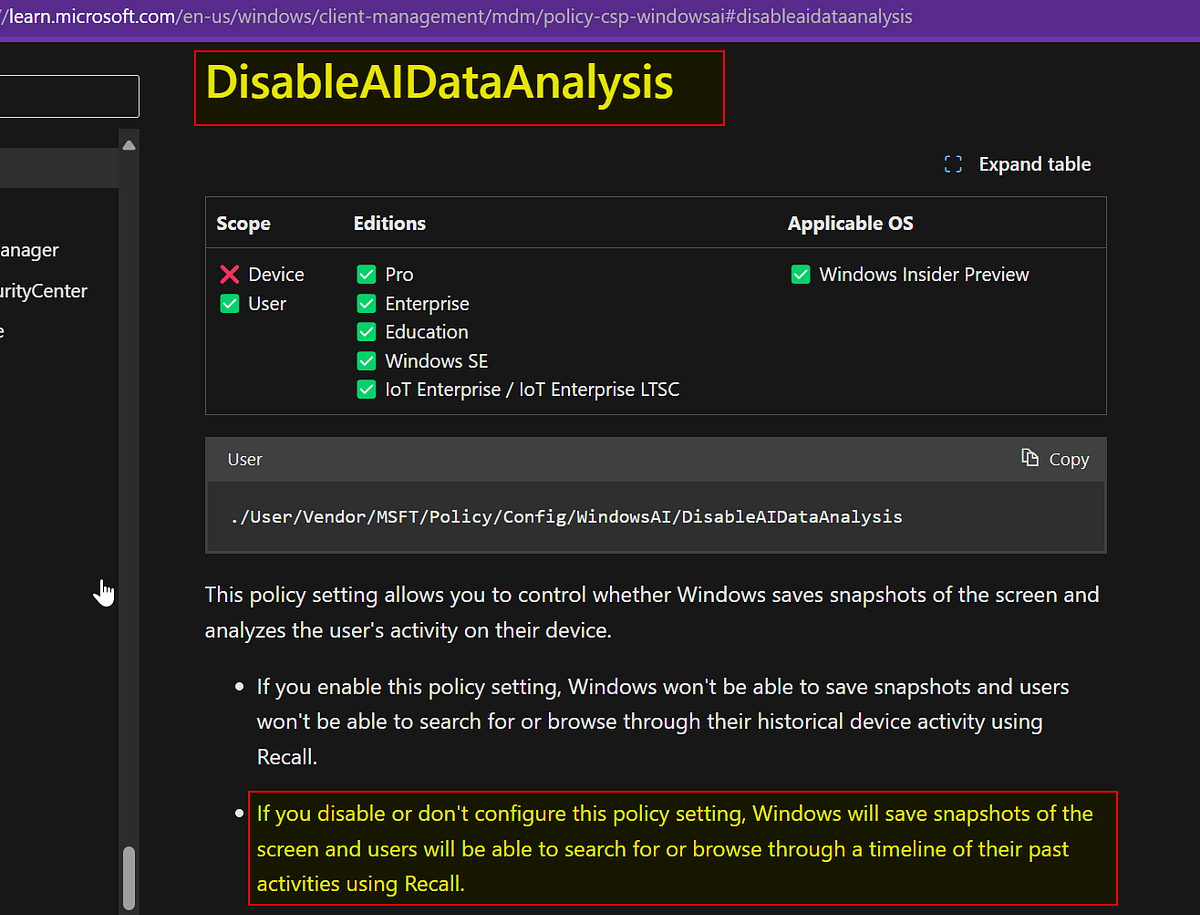Q. Is this really as harmful as you think?
A. Go to your parents house, your grandparents house etc and look at their Windows PC, look at the installed software in the past year, and try to use the device. Run some antivirus scans. There’s no way this implementation doesn’t end in tears — there’s a reason there’s a trillion dollar security industry, and that most problems revolve around malware and endpoints.



I didn’t want to put words in your mouth, but wanted to clear up where each of us stand so there is no missunderstanding.
If somebody gains control of your computer today, that’s a massive privacy and security hole in itself.
Absolutely, but even with control of your computer, if you’re smart, other accounts etc will still be inaccessible by the attacker.
Not when they get access to the Windows built in desktop spy saving everything it sees.
Not if it’s encrypted and if sensitive information is not saved.
Main point is still that gaining control of someone’s computer against their will is practically impossible today. If someone manages to do it, they already have your files and all the sensitive information they could want. They won’t even bother with this recall. And if you are worried about it, you will be able to just turn it off.
Much ado about nothing.
“If sensitive information is not saved” is doing a lot of heavy lifting for you there. The issue is that it saves everything.
But it doesn’t save completely everything. It does snapshots as far as I understand. So it’s unlikely a whole password would be there on a snapshot. And again, it had to be mentioned that anything can be excluded from recall or disabled completely.
At this point it has to be again highlighted that gaining access to a computer is very hard and that in itself is game over scenario. More information can be gained from a keylogger than this recall feature.
Eric Parkers video Recall